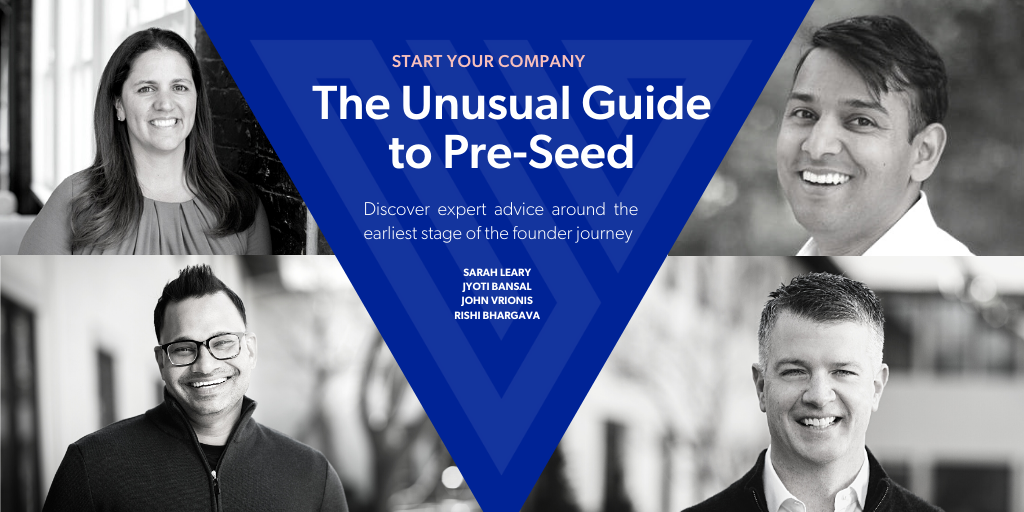Congratulations are of course in order on your successful startup funding round – it’s taken skill, luck and a massive amount of determination to have finally banked that cheque.
As a former CEO of two software startups and an investor myself, I have some appreciation for the journey you’ve just been on and from both sides of the table. But it’s what you do next that really matters.
I know your deck and presentation skills have been honed to the sharpest of points. Your data room has grown rapidly during this process, and you have most if not all the right answers that investors wanted to hear.
But ‘answers’ may not in fact turn out to be reality and being honest, you know in your heart that all the stars are going to need to align for you to deliver both your hiring plan and the sales numbers included in v7.12 of your projected three-year P&L.
I’m going to skip right past your ‘vision’, amazing as it no doubt is, and get into something much more important for the success of this funding round for your startup – and that’s ‘product-market fit’. For starters, don’t assume that just because investors have put money in and just because you have early customers that you are already there. Investors really don’t understand your market and customers, despite their sector ‘expertise’, research and a few customer calls.
Real-world scalability
I’ve learned the hard way that a truly difficult nut to crack for the founding team is building the product and business model that works effectively in the real world and at scale. It’s that combination of true customer desire to solve a problem, a confirmed business model that can make money and a product that solves the customer’s issues in a differentiated way. I don’t believe that customers at this stage ‘can’t’ live without you, so this is something you need to continue to spend a significant amount of your time on so that this becomes a reality.
Not getting this right leads to a second problem and that’s hiring too many people too soon. Before you put your foot down you need to establish a great hiring and onboarding process. As CEO you ultimately own the selection and success of each new hire. Is every hire essential and do the people you hire prove to be essential to the business in one to two months’ time?
You will disagree, but CEOs should not assume that they are great at hiring for roles in their startup, it’s very different to hiring in big corporate land. One of the reasons serial entrepreneurs do well is that they know what they are looking for and often know who to call. For key hires, I’d lean on the advice of the great British entrepreneur Felix Denis: “the talent go hire it, but first wine and dine it, it’s tedious work with a talented jerk”.
Team fit is essential, and I always think that the hiring process should be tough, the wrong candidates self-select themselves out of the process. Getting your key lieutenants and managers on board to complement your existing team will make or break the success of this round.
Despite your great slideware, don’t assume you have reliable metrics, especially the key ones required to feed the sales funnel at each stage. I’ve seen great people fooled by selection bias and ‘happy ears’ and this will rapidly lead to a bad night’s sleep.
Funding round advice: communication
Things are happening fast in your startup, so it’s critical to get communication and management practices established early. All hands, one-to-ones need to be planned ahead so that you and your team can get into an effective business rhythm. Spend real time with your team, listen and listen again. Transparency with your people and zero bullshit is the order of the day, every day. If things are going off plan (which will happen), you need to enlist the support of all your team, people know when things are off track, so it’s best for the team to hear it from you.
It’s also important to clearly define roles and responsibilities in the founder team. Do this well and only the most important decisions need to be debated. It’s not something investors often talk about but it’s critical for you to clear up conflicts within the founding team. Don’t let things get bottled up, you won’t always see things the same way so there needs to be an environment of open honesty, where you can work through the issues of the day, enable direct feedback, without it being perceived as an attack.
Finally, don’t assume your next funding round for your startup will be as easy as this one (I know this was tough), but tough times are still ahead and for things to go smoothly you need to deliver on what you said you were going to do, so get going.
Tony Bolland is the former CEO of AppSense and Avecto and now runs a solo venture capital firm, Most Excellent Ventures.
The post Advice for founders after an early funding round appeared first on UKTN | UK Tech News.



